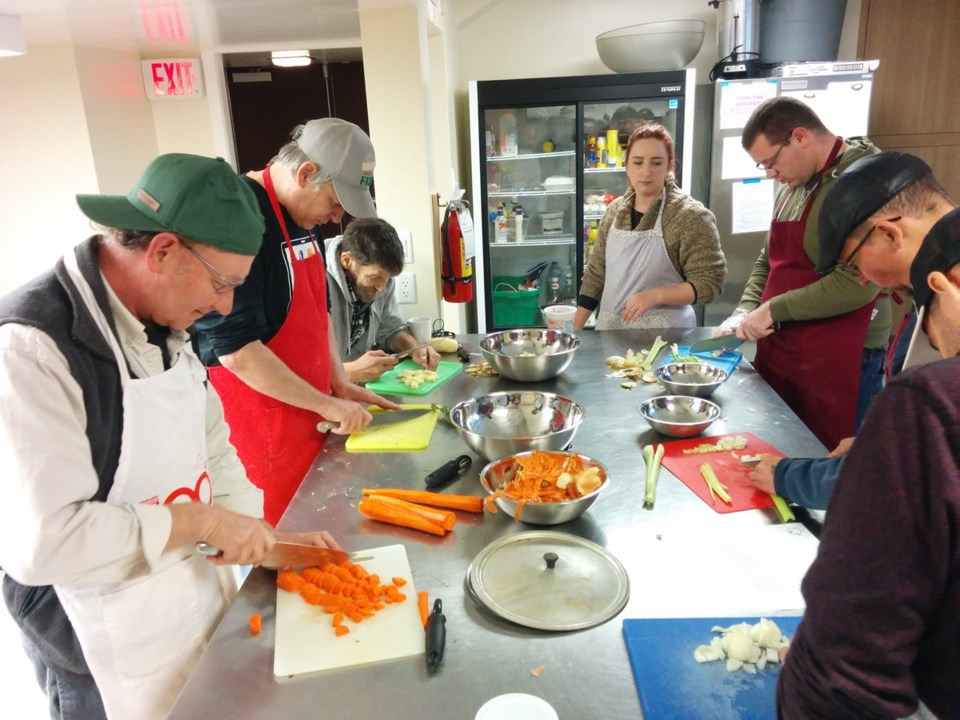Geoff Sing was only half-joking when he said the Cridge Centre for the Family was getting into the restaurant business.
The manager of Cridge Brain Injury Services was referring to the next phase of its employment program for brain-injury survivors funded by the Victoria Foundation.
Its food-skills training program is an integral component of a project that provides training and job skills to as many as 36 survivors each year, enabling them to be self-sufficient and viable members of the community.
Survivors who have been trained in kitchen and food skills are given an opportunity to work as cooks for hot-breakfast programs at local schools.
The foundation has helped support projects including its programs at George Jay Elementary School and Cridge Child Care Services’ daycare. A hot-lunch program at Pacific Christian School is in the works.
“We’re doing re-training, moving survivors along the continuum of care and support,” said Sing, whose department has provided support to survivors of brain injury for the past two decades.
Without such support, survivors can be at risk of homelessness, as they often have to re-learn employment and basic living skills.
“At each stage they develop and strengthen job skills as they move towards working on their own without support,” Sing said.
Janelle Breese Biagioni, community services co-ordinator for Cridge Brain Injury Services, said while partner schools benefit as brain-injury survivors get job experience, there’s another notable value.
“With these skill sets that they obtain, they are also personally benefiting by learning how to shop and budget and prepare nutritious meals [for themselves],” she said.
Building awareness of how brain-injury survivors can be productive members of the workforce is another important aspect, Biagioni said.
“We don’t want people to hire them just because they are survivors of brain injury, but because they can do the job. We are not lowering expectations of what survivors can do.”
Another long-term goal for participants is independence, added Sing, expressing gratitude for the support from Victoria Foundation and other community partners.
“It’s a good investment in the lives of survivors that allows them to be contributors back to society, not just receivers,” he said.



